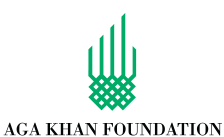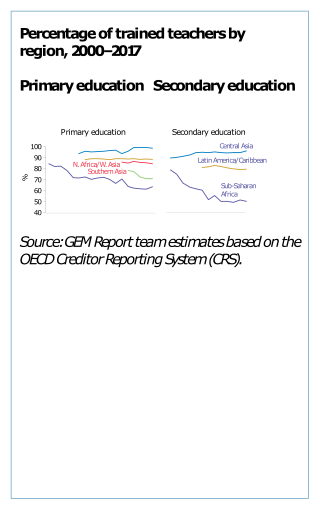
The No Child Left Behind Act of 2001 (NCLB) was a 2002 U.S. Act of Congress promoted by the presidency of George W. Bush. It reauthorized the Elementary and Secondary Education Act and included Title I provisions applying to disadvantaged students. It mandated standards-based education reform based on the premise that setting high standards and establishing measurable goals could improve individual outcomes in education. To receive federal school funding, states had to create and give assessments to all students at select grade levels.
The United Nations defines community development as "a process where community members come together to take collective action and generate solutions to common problems." It is a broad concept, applied to the practices of civic leaders, activists, involved citizens, and professionals to improve various aspects of communities, typically aiming to build stronger and more resilient local communities.

Youth empowerment is a process where children and young people are encouraged to take charge of their lives. They do this by addressing their situation and then take action in order to improve their access to resources and transform their consciousness through their beliefs, values, and attitudes. Youth empowerment aims to improve quality of life. Youth empowerment is achieved through participation in youth empowerment programs. However scholars argue that children's rights implementation should go beyond learning about formal rights and procedures to give birth to a concrete experience of rights. There are numerous models that youth empowerment programs use that help youth achieve empowerment. A variety of youth empowerment initiatives are underway around the world. These programs can be through non-profit organizations, government organizations, schools or private organizations.

The Carnegie Corporation of New York is a philanthropic fund established by Andrew Carnegie in 1911 to support education programs across the United States, and later the world.

Environmental education (EE) refers to organized efforts to teach how natural environments function, and particularly, how human beings can manage behavior and ecosystems to live sustainably. It is a multi-disciplinary field integrating disciplines such as biology, chemistry, physics, ecology, earth science, atmospheric science, mathematics, and geography.

The Aga Khan Foundation (AKF) is a private, not-for-profit international development agency, which was founded in 1967 by Shah Karim Al Hussaini, Aga Khan IV, the 49th Hereditary Imam of the Shia Ismaili Muslims. AKF seeks to provide long-term solutions to problems of poverty, hunger, illiteracy and ill health in the poorest parts of South and Central Asia, Eastern and Western Africa, and the Middle East. In these regions, the needs of rural communities in mountainous, coastal and resource poor areas are given particular attention. The Foundation's activities often reinforce the work of other sister agencies within the Aga Khan Development Network (AKDN). While these agencies are guided by different mandates pertaining to their respective fields of expertise, their activities are often coordinated with one another in order to "multiply" the overall effect that the Network has in any given place or community. AKF also collaborates with local, national and international partners in order to bring about sustainable improvements of life in the 14 countries in which it implements programmes. The Foundation's head office is located in Geneva, Switzerland.

Civic engagement or civic participation is any individual or group activity addressing issues of public concern. Civic engagement includes communities working together or individuals working alone in both political and non-political actions to protect public values or make a change in a community. The goal of civic engagement is to address public concerns and promote the quality of the community.

Teacher education or teacher training refers to programs, policies, procedures, and provision designed to equip (prospective) teachers with the knowledge, attitudes, behaviors, approaches, methodologies and skills they require to perform their tasks effectively in the classroom, school, and wider community. The professionals who engage in training the prospective teachers are called teacher educators.
The second of the United Nations Millennium Development Goals focuses on achieving Universal Primary Education. This goal aims to ensure global access to complete primary education for all children, regardless of gender, by 2015. Education plays a crucial role in achieving all Millennium Development Goals, as it equips future generations with the necessary tools to combat poverty and prevent diseases such as malaria and HIV/AIDS.

The European University Institute (EUI) is an international postgraduate and post-doctoral research-intensive university and an intergovernmental organisation with juridical personality, established by its founding member states to contribute to cultural and scientific development in the social sciences, in a European perspective. Its main campus is located in the hills above Florence in Fiesole, Italy.

Community education, also known as Community-Based Education or Community Learning & Development, or Development Education is an organization's programs to promote learning and social development work with individuals and groups in their communities using a range of formal and informal methods. A common defining feature is that programmes and activities are developed in dialogue with communities and participants. The purpose of community learning and development is to develop the capacity of individuals and groups of all ages through their actions, the capacity of communities, to improve their quality of life. Central to this is their ability to participate in democratic processes.
These organizations for post-secondary education have a common purpose and mission for advocacy in numerous areas of both institutional management and the general public interest. The organizations have specific purpose for issues from faculty unionization to public policy research and service to institutions. Most are focused on the organization and governance of higher and tertiary education, but some are involved in service and research at all levels of education.
CD Publications began as a news service firm located in Silver Spring, Maryland, outside Washington, D.C. It produces web-based news services and newsletters, whose topics of coverage include housing, health care, education, funding, aging and Native Americans.
The Chicago Annenberg Challenge (CAC) was a Chicago public school reform project from 1995 to 2001 that worked with half of Chicago's public schools and was funded by a $49.2 million, 2-to-1 matching challenge grant over five years from the Annenberg Foundation. The grant was contingent on being matched by $49.2 million in private donations and $49.2 million in public money. The Chicago Annenberg Challenge was one of 18 locally designed Annenberg Challenge project sites that received $387 million over five years as part of Walter Annenberg's gift of $500 million over five years to support public school reform. The Chicago Annenberg Challenge helped create a successor organization, the Chicago Public Education Fund (CPEF), committing $2 million in June 1998 as the first donor to Chicago's first community foundation for education.

The Carnegie United Kingdom Trust is an independent, endowed charitable trust based in Scotland that operates throughout Great Britain and Ireland. Originally established with an endowment from Andrew Carnegie in his birthplace of Dunfermline, it is incorporated by a royal charter and shares purpose-built premises with the Carnegie Trust for the Universities of Scotland, the Carnegie Dunfermline Trust, and the Carnegie Hero Fund Trust.
The term community school refers to a type of publicly funded school in the United States that serves as both an educational institution and a center of community life. A community school is both a place and a set of partnerships between the school and other community resources. Its integrated focus on academics, youth development, family support, health and social services and community development leads to improved student learning, stronger families and healthier communities. Using public schools as hubs, community schools bring together many partners to offer a range of support and opportunities to children, youth, families and communities—before, during and after school, and on weekends.
Expanded learning time (ELT) is a strategy employed by schools in the United States to redesign their school days and/or years in order to provide students, particularly in communities of concentrated poverty, with substantially more and better learning time. ELT is often a core element of school improvement or turnaround efforts, such that other practices like teacher collaboration, data-driven instruction, and integrated enrichment can be more effectively implemented. ELT differs from associated efforts like after-school programs or expanded learning opportunities (ELOs) because ELT requires all students in a given school to attend the longer day and/or year, and the additional time becomes a dependent component of the school's educational practices and objectives.
The National Center on Time & Learning (NCTL) is a Boston-based non-profit dedicated to expanded learning time to improve student achievement and enable a well-rounded education. Through research and public policy, and technical assistance, NCTL supports national, state, and local initiatives that add significantly more school time for academic and enrichment opportunities to help all children meet the demands of the 21st century.

Children of migrant workers struggle to achieve the same level of educational success as their peers. Relocation causes discontinuity in education, which causes migrant students to progress slowly through school and drop out at high rates. Additionally, relocation has negative social consequences on students: isolation from peers due to cultural differences and language barriers. Migrant children, defined as those who relocate because of involvement with agriculture-related industries or other seasonal work, are also at a disadvantage because the majority live in extreme poverty and must work with their parents to support their families. These barriers to equal educational attainment for children of migrant workers are present in countries all over the world. Although the inequality in education remains pronounced, government policies, non-governmental organizations, non-profits, and social movements are working to reverse its effects.

Climate change education (CCE) is education that aims to address and develop effective responses to climate change. It helps learners understand the causes and consequences of climate change, prepares them to live with the impacts of climate change and empowers learners to take appropriate actions to adopt more sustainable lifestyles. Climate change and climate change education are global challenges that can be anchored in the curriculum in order to provide local learning and widen up mindset shifts on how climate change can be mitigated. In such as case CCE is more than climate change literacy but understanding ways of dealing with climate











